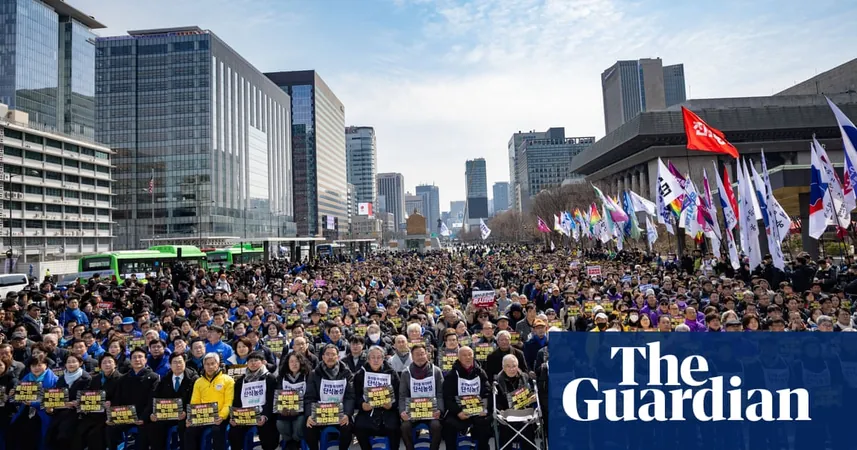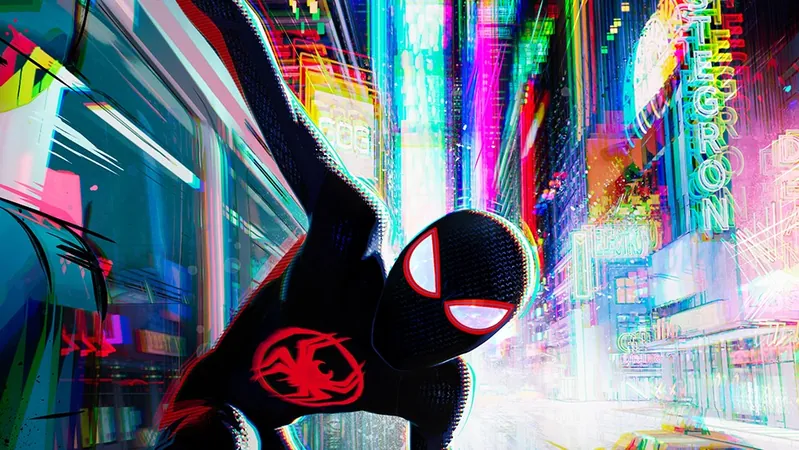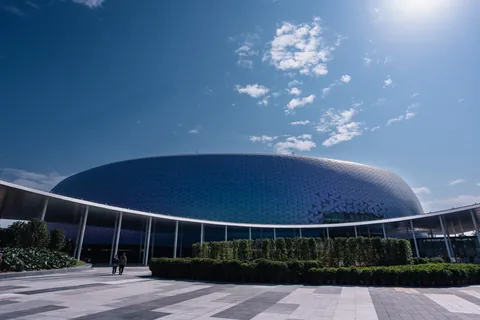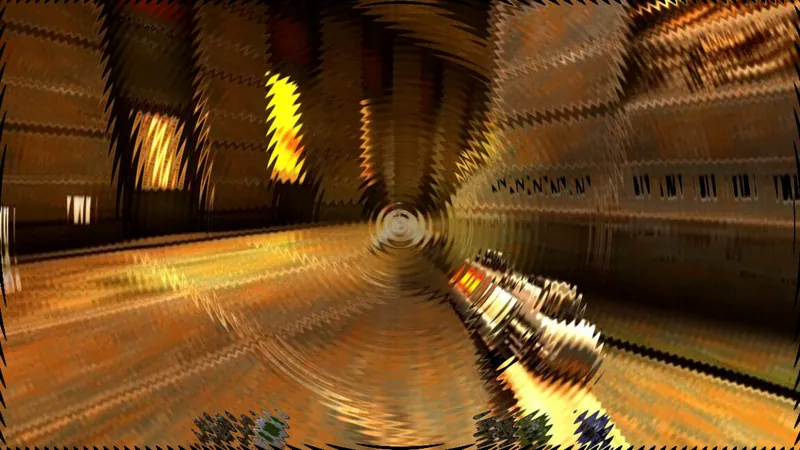
South Korea on Edge: Historic Ruling Looms as President Yoon Faces Impeachment Crisis
2025-04-03
Author: Ken Lee
South Korea on Edge: Historic Ruling Looms as President Yoon Faces Impeachment Crisis
The usually tranquil streets surrounding South Korea’s Constitutional Court in Seoul have transformed into a battleground of political tension as the nation awaits a monumental decision that could shape its future.
On Friday, the court is set to rule on whether to uphold the impeachment of suspended President Yoon Suk Yeol – a dramatic political crisis that erupted following his controversial decision to impose martial law several months ago. This unprecedented move triggered South Korea’s most severe political turmoil in decades and raised questions about the survival of democracy in the nation.
The court is located in Anguk, a neighborhood whose name translates to “peaceful country,” an ironic juxtaposition as citizens brace for a verdict that stems from Yoon’s attempts to consolidate power in December, which some viewed as a blatant attack on democratic institutions.
To contain potential unrest, authorities are mobilizing over 14,000 police officers, more than 10% of South Korea's total police force. A “vacuum state” has been declared, extending a 100-meter radius around the court to prohibit demonstrations. As police presence intensifies, traffic has come to a standstill, forcing the closures of iconic ancient palaces in the area, denying citizens the chance to enjoy the beautiful spring blossoms.
The court's security measures are unprecedented. Gas stations nearby will close to prevent arson, access to rooftops will be restricted to deter possible projectiles, and proposals are in place to track licensed firearms owners via GPS during the ruling. Several schools and subway lockers will also close to prevent threats, while a no-fly zone has been implemented over the court, with police deploying signal jammers against unauthorized drones.
If Yoon is cleared of impeachment, it would mark an extraordinary political comeback; however, if he is removed from office, he would join a list of disgraced leaders who have undermined South Korea’s democratic framework. In addition to his impeachment woes, Yoon is embroiled in a criminal trial, facing accusations of instigating an insurrection—charges that could bring a sentence of life imprisonment.
The streets have been filled with large-scale protests, reflecting the deep division among South Koreans. Last weekend, hundreds of thousands gathered in central Seoul for dueling rallies both in support of and against Yoon, enduring cold temperatures to express their passionate beliefs about the future of their nation.
“The ongoing crises remain unresolved, leaving people overwhelmed with fatigue and frustration,” stated Lee Han-sol, a demonstrator opposed to Yoon. Conversely, supporters waving Trump-themed banners insisted the impeachment process was illegitimate.
Authorities are taking extreme measures to avert chaos reminiscent of past incidents, such as the violent clashes that took place when Yoon’s supporters stormed a courthouse earlier this year, injuring numerous police officers. The weight of history looms large, especially recalling the tragic events of March 2017 when protests resulted in fatalities during disgraced former president Park Geun-hye’s impeachment process.
The court is already barricaded, and officials are on high alert. Police Chief Lee Ho-young expressed readiness for the worst possible scenarios, declaring the highest level of emergency status in anticipation of potential civil unrest.
To officially impeach Yoon, at least six of the court’s eight justices must approve the motion passed by MPs in mid-December, which would force a presidential election within 60 days. If the impeachment fails, Yoon's powers would be restored immediately.
As deliberations drag into their fifth week, the court faces criticism for taking too long, leading to increased public frustration. “The situation has reached a breaking point,” said opposition MP Kim Min-seok, urging the court to make a timely and responsible decision.
With tensions escalating, both sides are prepared for whatever outcome may arise. “If he is reinstated, many dangerous things can happen,” warned anti-Yoon protester Chung Sung-il.
Acting President Han Duck-soo called for calm and respect for the court’s decision, emphasizing the importance of upholding the rule of law.
The air is thick with anticipation and anxiety as South Korea stands at a critical juncture, awaiting a verdict that will not only dictate President Yoon's fate but may also alter the trajectory of the nation’s democracy for years to come.



 Brasil (PT)
Brasil (PT)
 Canada (EN)
Canada (EN)
 Chile (ES)
Chile (ES)
 Česko (CS)
Česko (CS)
 대한민국 (KO)
대한민국 (KO)
 España (ES)
España (ES)
 France (FR)
France (FR)
 Hong Kong (EN)
Hong Kong (EN)
 Italia (IT)
Italia (IT)
 日本 (JA)
日本 (JA)
 Magyarország (HU)
Magyarország (HU)
 Norge (NO)
Norge (NO)
 Polska (PL)
Polska (PL)
 Schweiz (DE)
Schweiz (DE)
 Singapore (EN)
Singapore (EN)
 Sverige (SV)
Sverige (SV)
 Suomi (FI)
Suomi (FI)
 Türkiye (TR)
Türkiye (TR)
 الإمارات العربية المتحدة (AR)
الإمارات العربية المتحدة (AR)